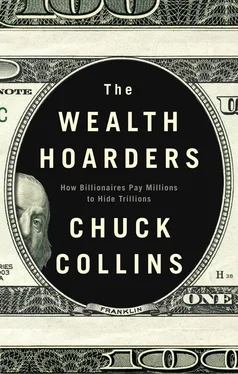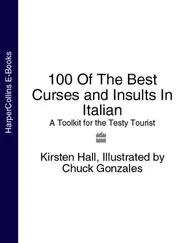Yes, there are differences. But what these three stories – Dee, Blue Hippo, and Angola – have in common is a system of morally bankrupt wealth hiding that has mushroomed into a massive industry.
In April 2016, the Panama Papers were released to the world, a massive leak of 11.5 million documents, including the records of 214,000 offshore companies along with names of their real or “beneficial owners,” including passport scans. As journalist Luke Harding observed, a system “hidden in plain sight was revealed.”
The secret offshore industry – centered in tax havens like the British Virgin Islands – was not, as had been previously thought, a minor part of our economic system. Rather it was the system … The rich, it turned out, had exited from the messy business of tax long ago. 1
A segment of this industry has written the laws, warped the rules, and created the loopholes. Joining with thousands of others they are now engaged in the morally suspect practice of helping their clients avoid taxes and other ethical responsibilities. Most practitioners look the other way, collect large fees, and repeat stories to justify their behavior and livelihoods. Perhaps these are good people caught up in a morally bad system.
Tom Keatinge, the director of the Centre for Financial Crime and Security Studies at the UK-based Royal United Services Institute, writes in the Guardian that banks are doing a better job ferreting out money laundering but are subverted by other players in the Wealth Defense Industry.
As banks build their defenses, an equally committed army of accountants, lawyers, consultants, and advisors works to subvert those defenses. They use every tool of financial engineering to hide ownership and obfuscate payments, ensuring that deniability is plausible and that the trail followed by any investigator will be fiendishly complex.
There remain other obstacles to overcome: shortcomings in national and international regulations, governments’ woeful underinvestment in their response to illicit finance, and a lack of transparency concerning company ownership. This means that, until there is a revolution in how we tackle illicit finance, the sharp minds that enable the theft of national wealth will remain one step ahead of any would-be regulators. 2
The human cost of allowing the current system of professional enablers is very high, as we will discuss in Chapter 1. The ability of nations to build their economies, tax citizens, and make public investments is being compromised at a dizzying pace. As our societies reel from the Covid-19 pandemic, we have developed a deeper understanding of how decades of tax dodging and public austerity led to insufficient investments in public health and equity. Tax shifting contributed to the fragility and extreme inequalities that were the “pre-existing conditions,” the determinants of who lived and who died. In the face of trillions in deficit expenditures in response to the health emergency and its economic disruption, we should anticipate an acceleration of wealth hiding. Like freeloaders trying to slip out the back door of the restaurant when the bill comes due, the wealthy will be hiring their wealth managers to engineer their escapes.
How Much Wealth is Hidden?
Researchers estimate that some ten to twelve percent of the world’s wealth – trillions of dollars – is now hidden through a combination of tax-haven secrecy jurisdictions, shell companies, opaque trusts, and other mechanisms. The exact amount of hidden wealth is difficult to measure because … it is hidden. At the low end, researchers estimated in 2014 that eight percent of the world’s private wealth is hidden, over $7.6 trillion. 3Economist Gabriel Zucman, who wrote the 2016 book, The Hidden Wealth of Nations: The Scourge of Tax Havens, estimated that between 2010 and 2015, the amount of wealth in tax havens increased over 25 percent.
But global wealth has increased substantially since 2014. According to the Credit Suisse 2019 Wealth Report, total global wealth is US $360 trillion. Eight percent of this would be $28 trillion. 4Researchers from the global Tax Justice Network argue that these estimates grossly underestimate the amount of hidden wealth. They estimated in 2015 that hidden wealth ranged as high as $24 trillion to $32 trillion if non-financial assets such as real estate, yachts, art, and gold are included. 5John Christensen and James Henry write:
Many assets are not unrecorded but misrecorded in the names of trustees or nominee directors, not beneficial owners. Since there is a recorded owner, there is no mismatch, hence Zucman omits this missing wealth. He also ignores some $5–10 trillion in offshore non-financial assets like real estate, art, yachts, and gold. 6
A recent study by the International Monetary Fund estimates that globally 40 percent of foreign direct investment – about $15 trillion – “passes through empty corporate shells” with “no real business activities.” 7All participants to this exercise agree with two basic facts: the pace of wealth hiding is increasing, and the amounts of money are staggering. To update the famous quote by Senator Everett Dirksen, “A trillion here, a trillion there, and pretty soon you are talking about real money.” 8
Hidden Wealth Touches Us All
A few blocks from where Dee’s family office was located are the global Headquarters of the Boston Consulting Group, the company that worked with Isabel dos Santos and her shell companies – and the project to siphon the wealth of Angola into private offshore accounts. From its glitzy glass tower, looking over Boston harbor, the windows face east toward Africa and Angola.
Down the street rises a luxury building called Millennium Tower, one of the several thousands of new luxury apartment buildings constructed in Boston in the last several years. Over 35 percent of the 443 condominiums are owned by shell companies and trusts, and almost 80 percent of the unit owners do not claim a residential exemption, indicating that the condo is not their primary home. The 13,256 square foot penthouse was sold for $35 million to John Grayken, a private equity investor from Texas. Grayken, who renounced his US citizenship to avoid taxes, can legally live in his condominium four months a year. 9With average condominiums selling for over $4 million, Millennium Tower is not only a wealthy residence for the rich, but also a “wealth storage unit” for global capital looking to park itself and hold value. Over half the units are acquired by trusts and shell companies, many masking the identities of the real owners. The astronomical prices of these wealth storage units have helped raise average prices, artificially inflating land values and housing costs and contributing to an affordable housing emergency in the city, which includes homelessness, displacement, and increasing incidence of shelter poverty.
I don’t know anyone in my hometown of Boston who was swindled trying to buy a computer from Blue Hippo. It is exactly 7,127 miles from Boston to the Cook Islands, so I’m not planning to visit and see where Joseph Rensin parks his offshore trusts. But I don’t have to go far to find ways the Wealth Defense Industry has touched me personally. In Boston, the Covid-19 pandemic has fueled an unprecedented housing emergency. Tens of thousands of households are unable to pay their rents in the private speculative market. People are marching in the streets in protests over racial injustice and the ways that inequality weakened our society’s ability to respond to the pandemic. Meanwhile the wealth of the billionaire class – the wealth that is not hidden and still measured – is surging in the face of job losses, illness, and death. People are waking up to the ways in which our economic system extracts the wealth of the commons and funnels it upwards into the hands of the few.
Читать дальше











